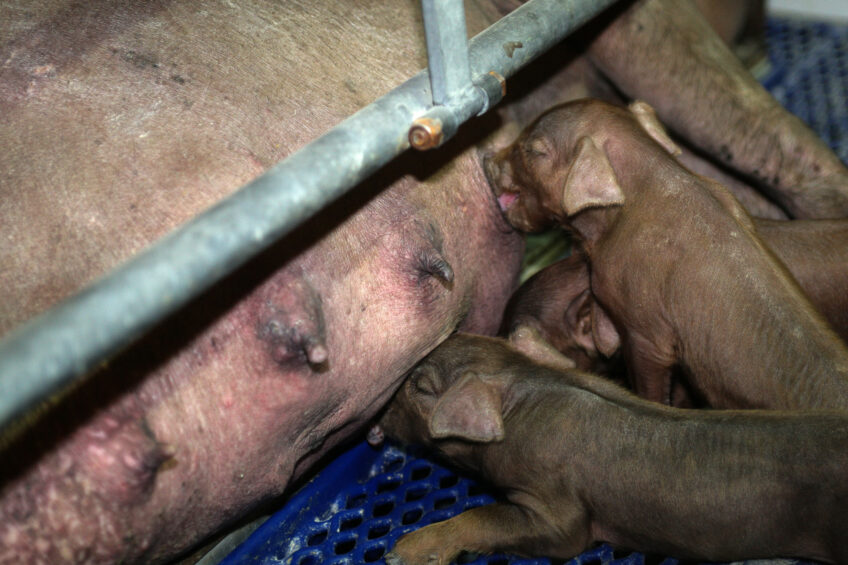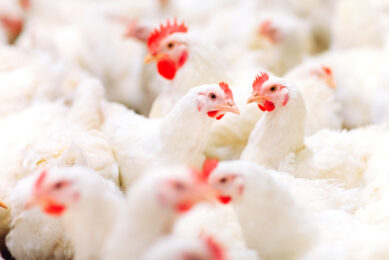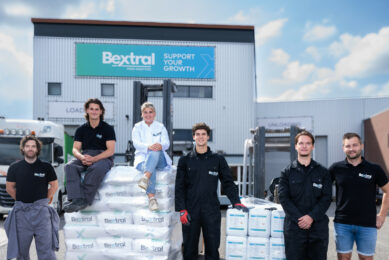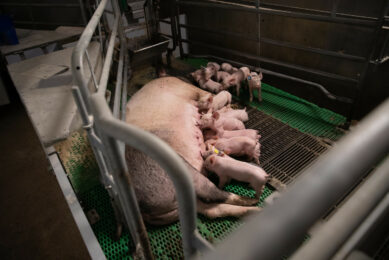Does fish oil improve the growth performance of suckling piglets?

Spanish researchers evaluated the impact of supplementing fish oil to Iberian sows on litter size, growth of piglets during lactation, and the concentrations of anti-inflammatory molecules in colostrum and milk. They published their findings in Animal.
Iberian sows are known for their maternal abilities and unique meat quality. Their productivity however, is characterised by a low number of weaned piglets and high piglet mortality during lactation. Improving colostrum and milk quality through dietary addition of fatty acids can improve piglet survival and growth.
About the study
The researchers used 40 sows in 2 consecutive management lots that were 44 days apart. The team randomly assigned the sows to 2 groups. They fed group 1 a control diet and group 2 a fish oil diet. Then, they housed the sows with boars for mating. After the boar removal, they kept the sows in the same outdoor pens during gestation and recorded their feed intake.
At 15 days of age, they fed the piglets either the control or the fish oil-rich diet. They measured the sows’ average daily weight and interscapular and sacral dorsal fat. They recorded the total number of piglets, live-born, stillborn, mummies, and their individual weights. In addition, they collected colostrum and samples to analyse fatty acid composition, oxylipin profile, and immune indicators.
The researchers did not observe any impact of the fish oil diet on the total number of piglets born, live-born, stillborn, mummies, and litter weight
Impact on sow and piglet performance
The fish oil diet did not impact fertility, feed intake, backfat and bodyweight of the sows. Although the piglets from the control group were heavier at birth, piglets fed the fish oil diet were heavier at weaning. The researchers did not observe any impact of the fish oil diet on the total number of piglets born, live-born, stillborn, mummies, and litter weight.
Impact on fatty acid profile of colostrum and milk
Sows fed the fish oil diet had a greater concentration of margaric acid and trycosilic acid in their colostrum and milk. In contrast, feeding the fish oil diet decreased polyunsaturated arachidonic acid and monounsaturated oleic acid, elaidic or trans-oleic acid fatty acids in colostrum and milk. In addition, feeding fish oil increased most of the oxygenated derivatives of polyunsaturated fatty acids in both colostrum and milk.
Impact on immune indicators
The colostrum from fish oil-fed sows had higher concentrations of immunoglobulins G and A than that from control sows; however, dietary fish oil did not impact the concentrations of immunoglobulins in milk. Furthermore, feeding fish oil had no impact on any of the cytokines in colostrum or milk.
Conclusion
The authors concluded that adding fish oil in sow diets increased the levels of immunoglobulins G and A in colostrum, fatty acids and their derived oxylipins in colostrum and milk, and piglet bodyweight at weaning.











